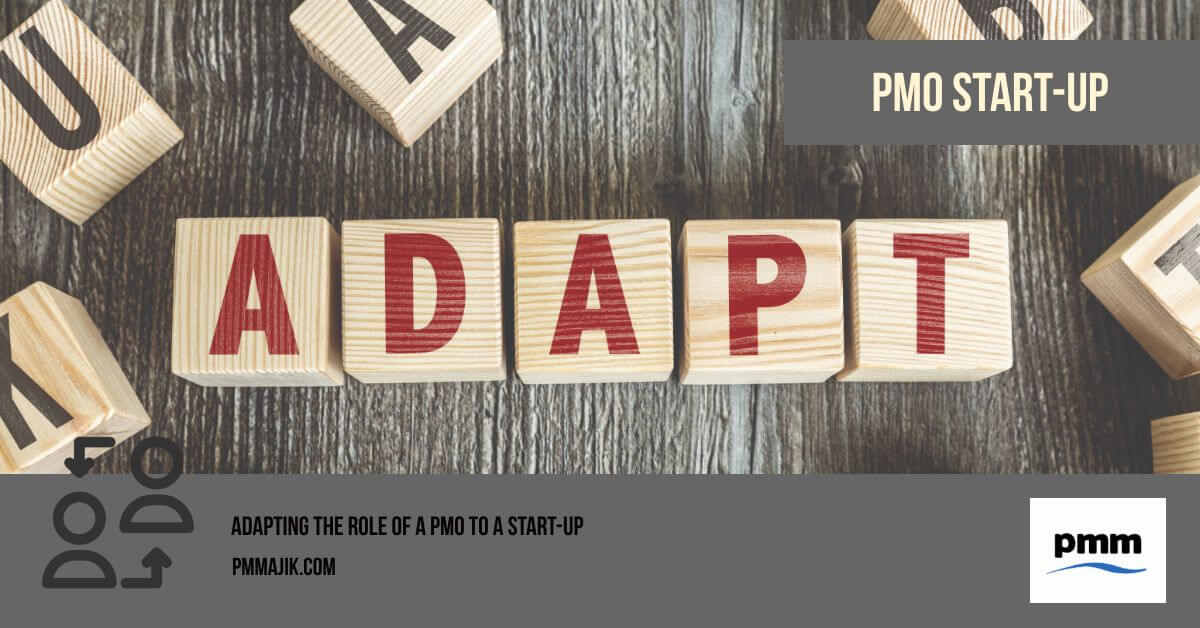The functions of a project management office (PMO) are myriad. Every business will have a different need for their PMO so each one will do slightly different things. How can you adapt the functions of a PMO to a start-up environment?
There are challenges to introducing a PMO into a thriving and dynamic start-up environment. Once you’ve had to go-ahead after making your PMO pitch, it’s time to think about the role the PMO will fulfil. We’re going to look at:
- The standard functions of a PMO
- How a PMO can adapt to working in a start-up
- Which roles shouldn’t be compromised in PMO for a start-up
Enabling you to know how to plan your new PMO.
What does a PMO traditionally do?
Each PMO that you’ve worked in will have been different in some way. That’s to be expected; every business has a different strategic goal that the PMO works towards.
That being said, there are of course commonalities across PMOs in terms of what they achieve. Here, we’ll look at some traditional functions and discuss how these might look and feel different in a PMO in a start-up.
Governance
In a large organisation, it’s important to keep control over all the projects across a business. A PMO designs and implements processes to make sure everything is done uniformly and things like talent management, development, and deliverables are harmonised.
This is one of the functions of a PMO that some suggest dampens creativity. On the contrary, a PMO can take these functions from individual projects in a start-up to free up team members to get the project completed.
In a start-up, you many need to have your office spend time working on new processes; it’s unlikely any have already been created.
Allocation of resources
As in the world, so too in business; resources are scarce. In a PMO, you’d normally be sure to allocate the right resources in terms of:
- People
- Time
- Materials
- Budget
So that projects can get completed efficiently.
In a start-up, the company will have little past experience about what’s needed. Planning and understanding needs will be more important to predict. Financial resources may be more sought after than normal – working with the right people to get what’s needed will be more important.
Ensuring delivery
Getting a project delivered on time and on budget are the two dreams of any project manager or PMO. Large businesses can have cumbersome systems to navigate, legacy issues, and change resistant colleagues, that need managing by the PMO.
A start-up has no old software to integrate and a staff that’s driven to innovate and embrace change. Delivery in a start-up is more likely held back by a lack of discipline and structure. A PMO in a start-up needs to introduce frameworks for project delivery to get them in on time.
Mentoring and development
Having a team that’s skilled and qualified to complete projects at hand is the job of the PMO. You can commission outside training or run your own courses to get the right skills. Coaching leaders to ensure they get the best from their teams is another role in a standard PMO.
Working in a start-up PMO, you’ll need to identify what you’re working with – how experienced is everyone under the office at their role? Where are the skill and talent gaps?
These more fundamental challenges will need to be addressed before getting in a rhythm of development activities.
Tracking and supporting projects
It’s the job of the PMO to know where each project is up to in terms of budget and timescales. Large companies have lots of projects that all need different things at different points along their timeline. The C-suite can ask for an update on any number of projects at any point.
In a start-up, there will be less projects, but likely they will need more support since structures are just being put in place. Tracking may be less bulky since projects will be about quick and agile delivery rather than mass changes.
The take home
Once you’ve got the support from a C-level sponsor to launch your PMO, you need to understand what strategic function your PMO will play. Things will be different in a start-up’s PMO, with less staff to manage but a faster pace as the company pushes innovation to market faster.
How you adapt the roles of a PMO to your start-up will depend on the management structure of the company.






